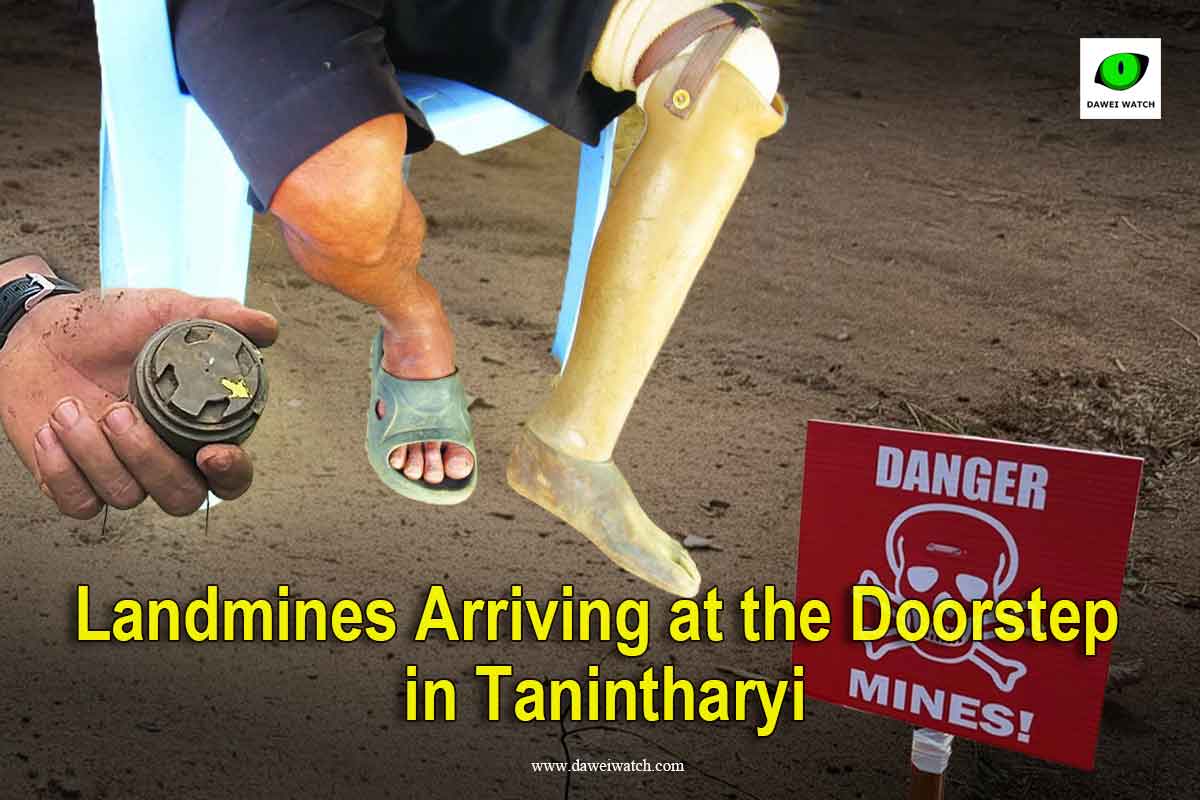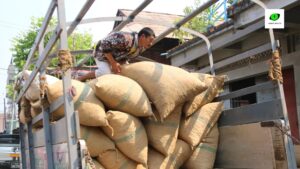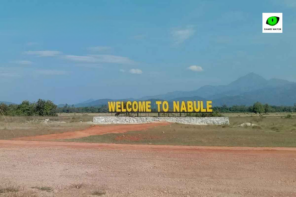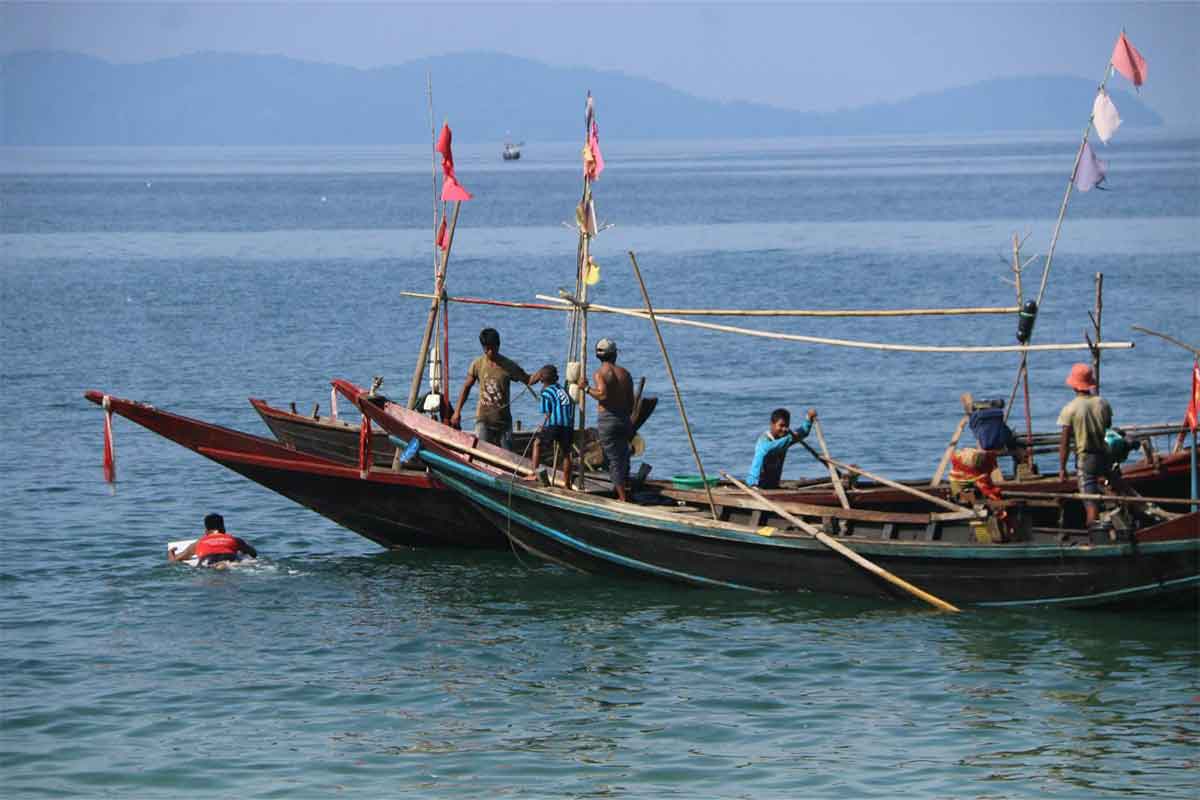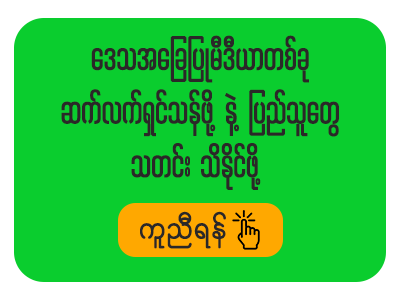It was a completely unexpected event that Ma Moe Khine and her husband faced directly. While returning on a motorbike after shopping at the market in Kalein Aung town, Dawei District, about five miles from their home, they stepped on a landmine on the road.
The front wheel of the motorbike they were riding on the Yangon-Dawei Union Highway hit the landmine, severely fracturing the bones in the husband’s left leg. Ma Moe Khine herself was hit by mine fragments in her thigh and required five stitches.
This incident, which the couple narrowly survived, occurred in late August of this year.
Before the coup, landmines were usually found only in remote mountains and forests, far from human habitation. Now, however, they have reached the Union Highway and are found near residential homes and in gardens and farms.
Due to this situation, the frequency of civilians stepping on landmines in the Tanintharyi Region has been increasing.
According to reports from the FE5 Tanintharyi research group, there have been at least 24 incidents of civilians stepping on landmines during the nine-month period from January to September of this year.
Due to the landmine injuries, Ma Moe Khine’s husband has been unable to work for months, leading to difficulties for the family’s livelihood.
“My husband had a steel plate put in, and the family’s entire livelihood depends on him. With him being injured like this, we’ve lost our main source of support. I feel a bit discouraged and sad. It’s been over a month now, and the doctors say he shouldn’t work for about two or three months. Right now, he can’t put any weight on his leg at all,” Ma Moe Khine said.
Just one day after Ma Moe Khine and her husband stepped on the mine, a family of three—a mother, father, and son—also hit a mine in the exact same spot while riding a motorbike. In that incident, the parents were injured, but their son, who was just over two years old, was killed.
According to reports from the FE5 Tanintharyi research group, most civilian landmine incidents occurred in Palaw Township, followed by Yephyu Township, with Dawei Township ranking third.
Landmine incidents involving civilian casualties and fatalities are also occurring in the remaining townships almost every month.
Most landmine incidents happen on village roads, in gardens/farms, and alongside main roads.
Yaw Nathan, the field coordinator for the Dauna Tanintharyi IDPs Support Group, stated that nearly five years after the coup, the danger posed by landmines and unexploded ordnance (UXO) has significantly increased.
He noted that besides physical injury, people are suffering psychological harm and difficulties in their struggle for survival due to these landmines and war remnants.
“In situations where landmines are planted in gardens/farms or where unexploded ordnance and landmines remain after a battle, people are afraid to enter their own fields. Their livelihoods are affected. As the family’s livelihood is impacted, the entire family’s situation is affected, and they suffer greatly psychologically,” said Yaw Nathan from the Dauna Tanintharyi IDPs Support Group.
Echoing his sentiment, U Myo Win, an oil palm worker in Bokpyin Township, said that while he has to work for his family’s survival, he constantly lives in fear of the landmine threat.
U Myo Win is a migrant worker originally from Bago Region, working as a palm fruit harvester at the Taung Dagon oil palm plantation in Bokpyin Township.
“We are doing this, risking our lives. It would be better to die immediately if we step on one. But losing a leg or an arm means a lifetime of disability, living as an invalid. My family would have extra burdens because of me. In these times when the country is not peaceful, we have to fear the unseen dangers and the visible dangers. Even if things calm down again, these landmines will continue to cause trouble,” said U Myo Win, a worker at the Taung Dagon oil palm plantation.
The landmines that civilians fear are used most often by the military junta’s troops, but revolutionary forces also use them.
In early October, when the military junta’s troops retreated from an operation near Kanto Village in Tanintharyi Township, they reportedly left landmines in gardens, on roads, and among houses, which revolutionary forces had to clear.
Furthermore, there have been incidents of some civilians being hit by mines planted by revolutionary forces on roads the military junta’s troops might use. The danger of landmines, which the people of Tanintharyi had not experienced before, has now reached their doorstep. They are facing a situation where they are even afraid to step outside their homes.
However, the use of landmines without restrictions is only increasing, and there are no visible movements for landmine clearance or danger awareness to be seen yet.
Ma Moe Khine pleaded for armed groups to be careful because of the suffering these landmines are causing to the public.
“I really want them to be a little careful so that the villagers and the public are not affected. Because the public is innocent and gets caught up in this,” she said.

